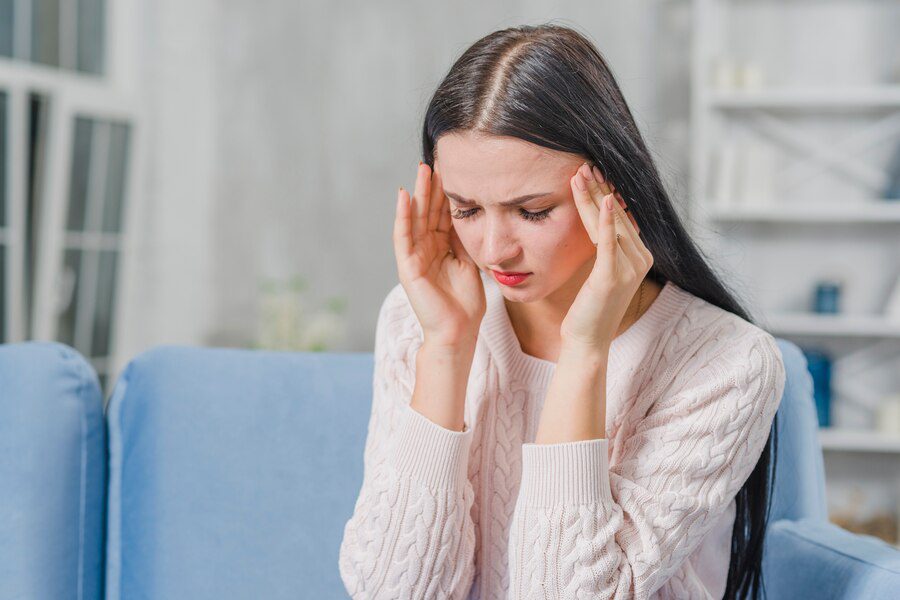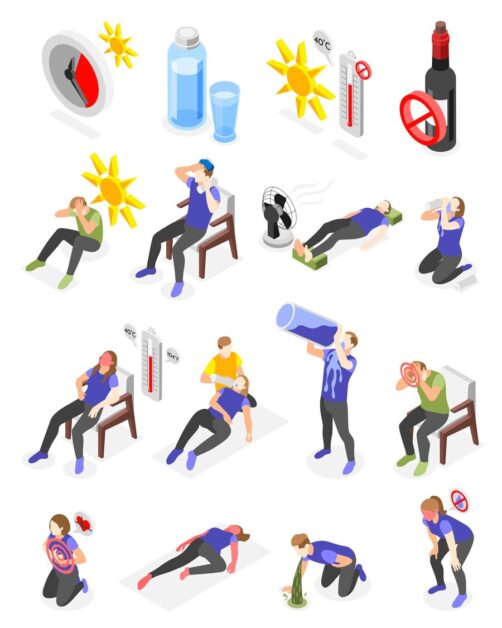This content is for informational and educational purposes only. Always consult a qualified healthcare provider.
Last Updated on March 4, 2024 by Grace Oluchi
Dehydration is when you don’t have enough water in your body. It occurs when you use or lose more fluid than you take in. And when the body loses more fluids than it consumes, it leads to an imbalance in electrolytes and disrupts bodily functions. Water is a necessity for your body to work well, and if you’re not drinking enough water, your body will pay for it.
Read here on drinking water and how it can change your life for the better.
Mild dehydration can cause health problems with blood pressure, heart rate, and body temperature. In other cases, it can also cause weakness or confusion. And in extreme cases, it can lead to brain damage and even death.
Every human being loses body water through various ways like, sweat, urine, breathing, and stool. The water lost is then replaced by drinking fluids and eating foods that contain water. A person can also lose water when they’re sick, like in cases of diarrhea or vomiting. Or from exercise or hot weather. Loss of water in the body often leads to an imbalance of electrolytes. Electrolytes are minerals and salts that the body needs to perform well. They include potassium, sodium, calcium, and magnesium.
📋 Table of Contents
What are the symptoms that mean you’re dehydrated?


Symptoms may manifest in different ways for people. They can include:
- Thirst
- Tiredness
- Less urine
- Dry mouth
- Dizziness or lightheartedness
- Fainting
- Confusion
- Dry skin or tongue
- Headache
- Sunken eyes
- Rapid heartbeat
- Muscle cramps
- Dry eyes or blurred vision
- Dark-colored urine
Do note that these symptoms can look like other health conditions. Which is why you should see your healthcare provider for a diagnosis.
How will the doctor know you are dehydrated?
It’s quite simple though. Firstly, your healthcare provider will ask about your symptoms and health history. Then, they also ask you if you’ve had any recent illness or activity. They’ll also let you have a physical exam, to check your blood pressure, temperature, and heart rate. They may tell you to have a blood test or urine test.
What are the things that cause dehydration?
Dehydration can be caused by the following things:
- Excessive sweating during exercise, high temperatures, and sauna use
- Diarrhea
- Fever
- Vomiting
- Too much alcohol
- Certain medications that cause extra urination, such as diuretics
Who is at risk of dehydration?
Several factors can increase the risk of dehydration, and certain groups of people may be more vulnerable to it than others. Here are some risk factors:
- People with diarrhea
- Are sweating a lot from exercise
- Infants and young children
- Living in hot or humid conditions
- Vomiting
- Over the age of 60 or older
- Pregnant and breastfeeding women
- No access to or not enough clean water to drink
Can dehydration be treated?
Definitely, it can be treated. However, treatment will depend on your age and general health status. It’ll also depend on how intense the condition is. You may also be treated for diarrhea, a high fever, or vomiting if you become dehydrated due to being sick.
For cases like mild to severe dehydration, you may need IV (intravenous) fluids. Severe dehydration can be regarded as a medical emergency that needs immediate IV fluids in a hospital.
With mild cases, you’ll just need to drink fluids, not just water, but also electrolytes such as sodium and potassium. For example, sports drinks can replace water and electrolytes. However, drinking water is still a good idea, as other liquids like fruit juices, tea, and soda.
Whatever you do, don’t have drinks with caffeine. These include some energy drinks, sodas, coffee drinks, and teas. Also, don’t drink alcohol. Because caffeine and alcohol may cause your body to lose more water.
To get the best results, just speak with your doctor about what treatment is best for you.
How to prevent yourself from becoming severely dehydrated.
Follow these tips to keep the fluids steady:
Drink enough water
Advice does vary. On average, an adult should drink 250 ml to 500 ml per day. Drink more if you’re in a hot environment or while you’re exercising.
Monitor fluid intake
Pay attention to your fluid intake and make sure you’re drinking enough throughout the day. Keep a water bottle with you and sip regularly, even if you don’t feel thirsty. However, remember not to rush drinking it, just take your time and it’ll do the work.
Drink before you’re thirsty
Many people don’t know this, and drink only when they’re thirsty or while eating. Thirst is a sign that you’re already mildly dehydrated, so try to drink water regularly throughout the day, even if you don’t feel thirsty. You’ll be helping your body stay cool and hydrated.
Avoid excessive alcohol and caffeine
Alcohol and caffeinated beverages can have diuretic effects, increasing urine output and potentially contributing to dehydration. So, make sure to limit your intake of these beverages, especially in hot weather or when exercising.
Eat hydrating foods
Bet you didn’t know that you can get a good amount of water from certain foods. Consume fruits like
- watermelon
- oranges
- strawberries
Vegetables such as:
- cucumbers
- celery
- lettuce
These are high water content foods that can help keep you hydrated.
Replace fluids you lose through sweat
If you’re exercising or working in hot weather, drink extra fluids to replace those lost through sweating. Sports drinks can help replace electrolytes lost through sweat, but water is usually sufficient for most people.
Some extra precautions to take
Be mindful of medications
Some medications, such as diuretics, laxatives, and antihistamines, can increase fluid loss and can lead to you being dehydrated. If you’re taking medications that may affect hydration, make sure to drink extra fluids as needed.
Dress appropriately for the weather
Wear lightweight, loose-fitting clothing when it’s hot, to help prevent excessive sweating and fluid loss. You wouldn’t want to be wearing a sweater when the sun is fully out and doing its business.
Take breaks in the shade
If you’re outdoors in hot weather, take frequent breaks in the shade to rest and cool down. Avoid prolonged exposure to direct sunlight, especially during peak hours. Well, in cases where you can’t wait under a shade at different points because you may be in a hurry, carry an umbrella along to protect yourself. Remember an umbrella doesn’t only protect you from rain but also the sun.
If you follow these tips, you’ll be able to maintain optimal hydration.
Check out these juicy articles
12 Types of Herbal teas and their benefits
Sugary drinks in 2024: Types, risks, and how to stop being addicted
Everything You Need to Know About Using Ozempic for Type 2 Diabetes.
Frequently Asked Questions
When is it really time to call my healthcare provider?
You should call your healthcare provider if you have the following:
- Frequent diarrhea, more than 5 times a day
- Traces of blood (red or black color) or mucus in diarrhea
- Continuous vomiting
- Belly ache
- Hard stool
- Small amount of blood in the vomit
- Swollen belly
- Fever of 100.4 degrees (38 degrees C)
What are the signs that dehydration has gotten out of hand?
Call an emergency number or go to the emergency room right away if you have:
- Dizziness or fainting
- Plenty of blood in vomits
- Large amounts of blood or mucus in diarrhea
- Weakness
- Drowsiness or confusion
- Severe body pain
Are there any diseases that can make a person dehydrated?
Yes, there are some health conditions that can lead to someone being extremely dehydrated. Diabetes, particularly poorly controlled diabetes or diabetic ketoacidosis (DKA), can lead to increased urine output and fluid loss, and causes a person to be dehydrated if fluids are not replaced.
kidney disease can also increase the risk, as do medications that increase urination. Even having a cold or sore throat makes you more susceptible to it because you’d be less likely to feel like eating or drinking anything.

